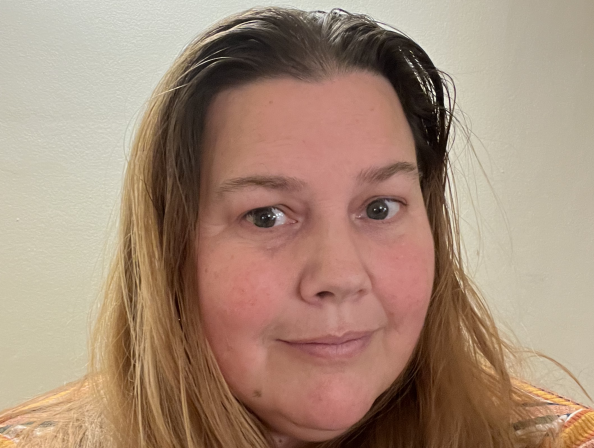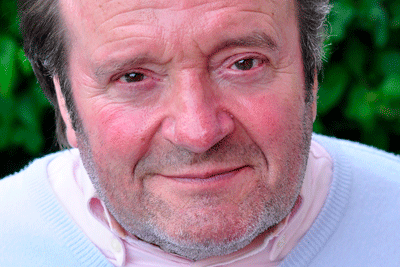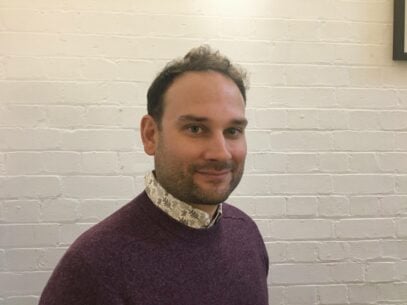13 December 2024
By Ellie Haworth, Head of Children’s Services Transformation and Improvement, SCIE
I had the good fortune to attend this year’s National Children and Adult Services Conference (NCASC) which took place in Liverpool, 27-29 November. SCIE’s focus this year was digital innovation.
NCASC is a bit of an annual highlight for us here at the Social Care Institute for Excellence (SCIE), right up there with Co-production Week, as a chance for us to have hundreds of conversations with colleagues from across social care about the subjects that matter the most to us, such as:
- Co-production and the voice of lived experience.
- Innovation – digital and wider – and sector-led improvement.
- How we build a social care system fit for the future.
- How we protect and develop practice.
- How we maximise outcomes for all of those people who draw upon our services for care and support.
And because NCASC brings together so many people who work in the sector, those whose services support and keep the sector flowing, and those with lived experience; you are tripping over people throughout the conference with wisdom, creativity and passion for social care.

Given this embarrassment of riches, I was pleasantly surprised to talk to someone at NCASC who said to me “I have the best job in social care”.
What a brag, what a boast, or indeed, as my children would say, what a flex.
I am going to repeat it, she claimed that she has “the best job in social care”.
Do you want to argue with her about that? Is your job the best job in social care? Do you know someone who has the best job in social care?
Now, I am not going to name this person, I am not going to divulge their job title and I am not going to reveal which local authority they work for. It would not be discreet. I am also not going to incite a competition about who has the best job, I don’t think a league table would fit with our professional values. However, I am going to talk about what this person said made their job “the best job in social care”. I think there is something valuable to be learnt about what it is that gives us pride in our professions.
So, she said “we know every child we look after”. In smaller authorities, or authorities with lower numbers of children looked after, it is easier to have a close view of children even when one has a strategic-level role. However, it seems to me that having this personal level of understanding of the children in our care is the ambition of every local authority.
Here at SCIE we are fortunate to host the charity Think Local Act Personal (TLAP) and they have spent years developing the personalisation tool Making It Real. Making It Real is a wonderful, multipurpose tool which allows us to understand how our services, systems and performance are perceived by those people who are directly in receipt of services, and also serves as a method for self-assessment. This is achieved by the powerful simplicity of the co-produced set of ‘I/We statements’. I can easily see why the Care Quality Commission (CQC) have adopted these into the assessment framework for their assurance programme: A truly personalised method of not only understanding what a person’s experience of system is, but also one that moves us on from knowing the name, identifying number and legal status of a child. This framework moves us away from just understanding what we think needs to happen for a child, and moves us far more into that relational, outcomes-focused space that we have been aspiring to.
So, maybe more of us can share this trait of the “best job in social work” and maybe we can all know the children in our care from a personal perspective.
What else did this blessed social worker say? She told me that they have to be creative with every child in their system. Now, I imagine that this will be a statement that will divide opinions. There will be people reading a requirement for professional creativity and feeling an absolute sense of horror. This dread could be of two types: How can a person continuously perform creatively? and; How can we ensure that our services are consistent if we are creative?
There will be, I presume, people reading this and rejoicing at the prospect of working in a creative environment. There are many people working in both children’s and adults’ social care in all roles who are determined to be creative in their practice. They bring their creative drive to their direct work with individuals, they make original plans, they devise new services and this benefits their own professional sense. This aids the people they work with and also the systems and services they operate within.
Adopting digital innovation requires a creative approach and feeling able to take risks – safely, which is important as it offers such huge potential for social care reform.
At SCIE, within our consultancy and our safeguarding work, we have sought to bring responses to those two questions above together. We support organisations to achieve robust, consistent and reliable services, while also having a requirement for creativity and personalisation. One of the reliable pleasures of working to spread the benefits of a strengths-based approach is that creativity is the hallmark of this practice. This is also reflected in our approach to digital innovation, demonstrated by our work with councils such as Bromley, and our new partnership with Agilisys, leading sector provider of Generative Artificial Intelligence (GenAI), helping councils adopt the AI products safely and ethically.
In a strengths-based practice framework, practitioners are empowered to be creative in their work with individuals. They are released from bureaucracy that continually reproduces the same limited palette of options, and they are encouraged to look to see whether there are personal, local, flexible solutions that are more authentic to the individual in question.
And so often when I speak to people about the pleasures that they find in their social care work, it is this creativity and strengths-based approach they talk about. Occupational therapists will brag about how strengths-based their profession is, family support workers will show off about how much they work with the unique circumstances of their families, and social workers will flaunt how they secured sustainable outcomes by working creatively.
Except no, they don’t. They don’t brag, or show off, or flaunt. Because we are a humble sector and we tend not to display our successes. We tend to feel pride for the individuals. However, I hope that there are many people reading this short blog who also feel that they have the best job in social care. Or maybe in your organisation there is someone or ‘several someone’s’ with the best job in social care. Indeed, having that ambition for our workforce seems like an interesting stance to assume when thinking about the cross-cutting workforce issues.
Even if we aren’t aiming for this high peak of the best job in social care, I think we can take on board the learning that personalisation and creativity elevate our work. SCIE can evidence that these practices elevate social care. They can be achieved practically. They sound high-minded but like all things that are valuable, they rely on repeated high standards found consistently across systems. Whatever job you have in social care, SCIE has seen people working with creativity and applying the same care to all individuals. And where we see it in practice, it is coupled with a quiet job satisfaction from the privilege of doing a job well.
Visit our main NCASC 2024 page for all updates and further information on digital innovation and advice.



